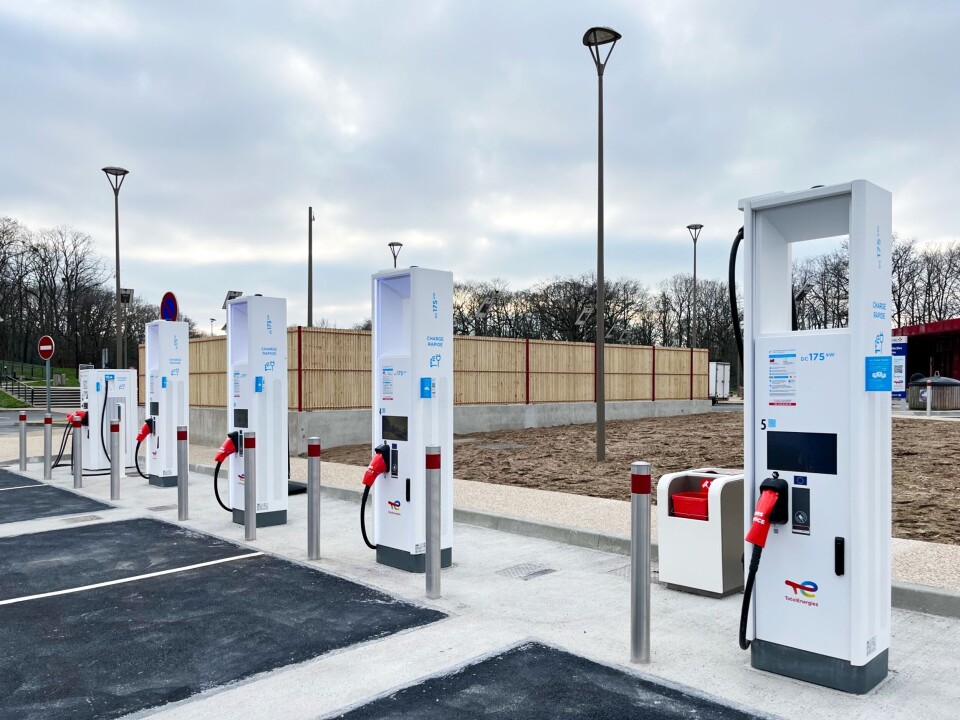-
‘No-licence’ cars: six rules to know in France
Double the number of these cars were registered in 2024 compared to 2019
-
France’s first 100% electric service station set to open in 2026
Station in Brittany will include six ultra-fast charging points
-
Tests underway on French motorway into recharging electric vehicle as you drive
‘World-first’ scheme sees quicker charging times than traditional methods
Car charging points on increase in France but costs more than diesel
But with a projected ban on new diesel and petrol cars by 2035, the government believes expanding the charging network is crucial

Autoroute operators say they are still increasing the number of electric vehicle (EV) charging points after nearly meeting a government target.
An official map from the trade body ASFA, produced in June 2022, claimed 219 autoroute service stations had charging facilities, with 800 individual posts, most of which delivered quick charges of 150kW.
This equated to a charger for every 80km of autoroute.
“Things have changed considerably since then,” an ASFA spokeswoman told The Connexion.
97% of autoroute service areas equipped
“The government gave us a target of chargers at all service areas on autoroutes by the end of 2022, and now 97% of them are equipped.
“We are in the process of updating the numbers and should have the new figures, which will be much higher than from June 2022, out soon.”
She said the decision, made early by operators, to install fast 150kW charging stations was showing its benefits.
“No one wants to have to wait long just to get to the charger, and with a 150kW point, most drivers plug in for no more than 15 minutes and get enough to be on their way, even if the battery is not 100% full.
This means there is usually an available charger, although obviously, as the number of electric cars increases, the number of charging points must increase too.”
In France, almost all electric car buyers also purchase domestic wall box chargers at the same time.
Read more: What are options to install electric car charge point at French home?
Estimates from Renault are that more than 90% of the electricity used to charge EV car batteries comes from these.
As a result, public charging points are rarely used, except in holiday season by drivers passing through.
In order to cover installation costs, they are often expensive to use.
Costs more than diesel
French motoring magazines have calculated that electricity from public charging points costs more per kilometre than diesel.
Nevertheless, the government wants to see more public charging points built, insisting that plans to ban new petrol and diesel cars by 2035 make it crucial that momentum is maintained.
Last year, it announced an aid package to help small rural service stations buy electric chargers, setting aside €10million and promising to pay between 60% and 70% of installation costs.
According to the car makers’ trade body ACEA, EV sales in Europe rose by a record 28% in 2022. Germans led the way, buying 198,293 EVs, followed by France (62,155).
ACEA’s new head, Luca de Meo, used his first press conference to ask governments to accelerate the installation of electric car chargers.
He said that across Europe only 2,000 a week are being installed, while ACEA has calculated that 14,000 a week are needed to ensure the 2035 ban on sales of internal combustion engines does not cause chaos.
Related articles
What help is available to rent an electric car in France?
France wants to make €100-a-month electric cars a reality
Fast electric car charger designed in France can send power to grid
























